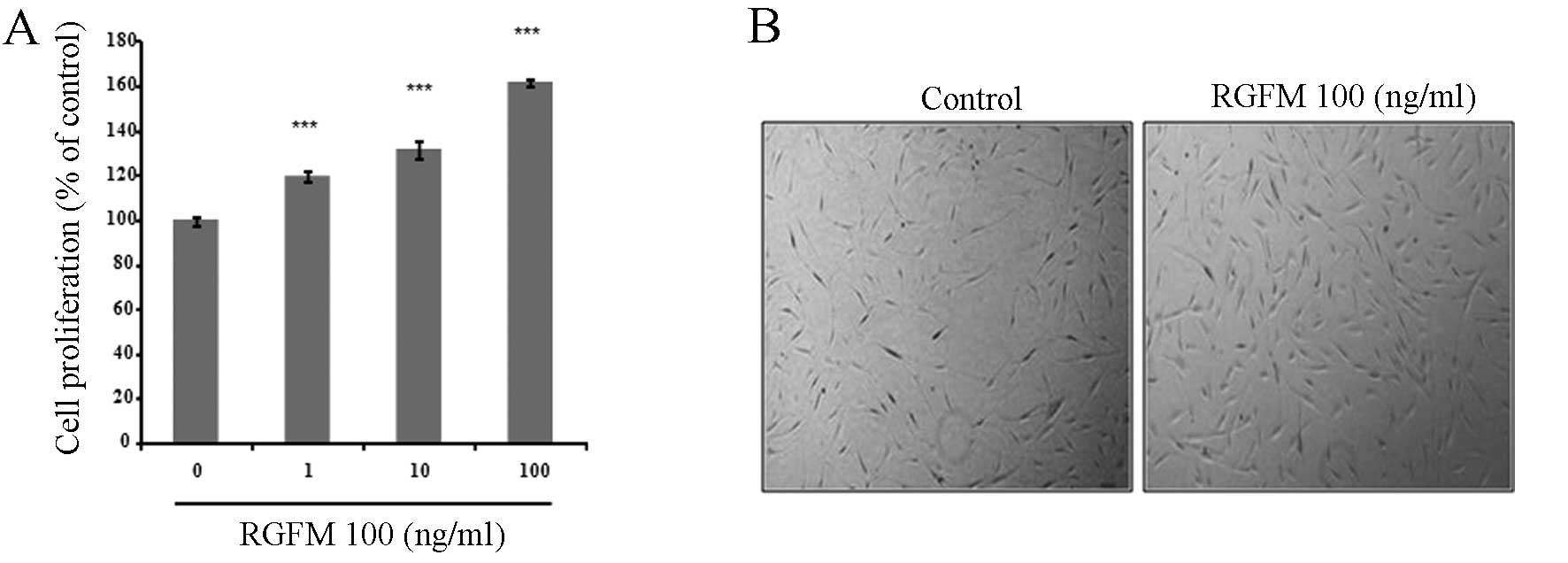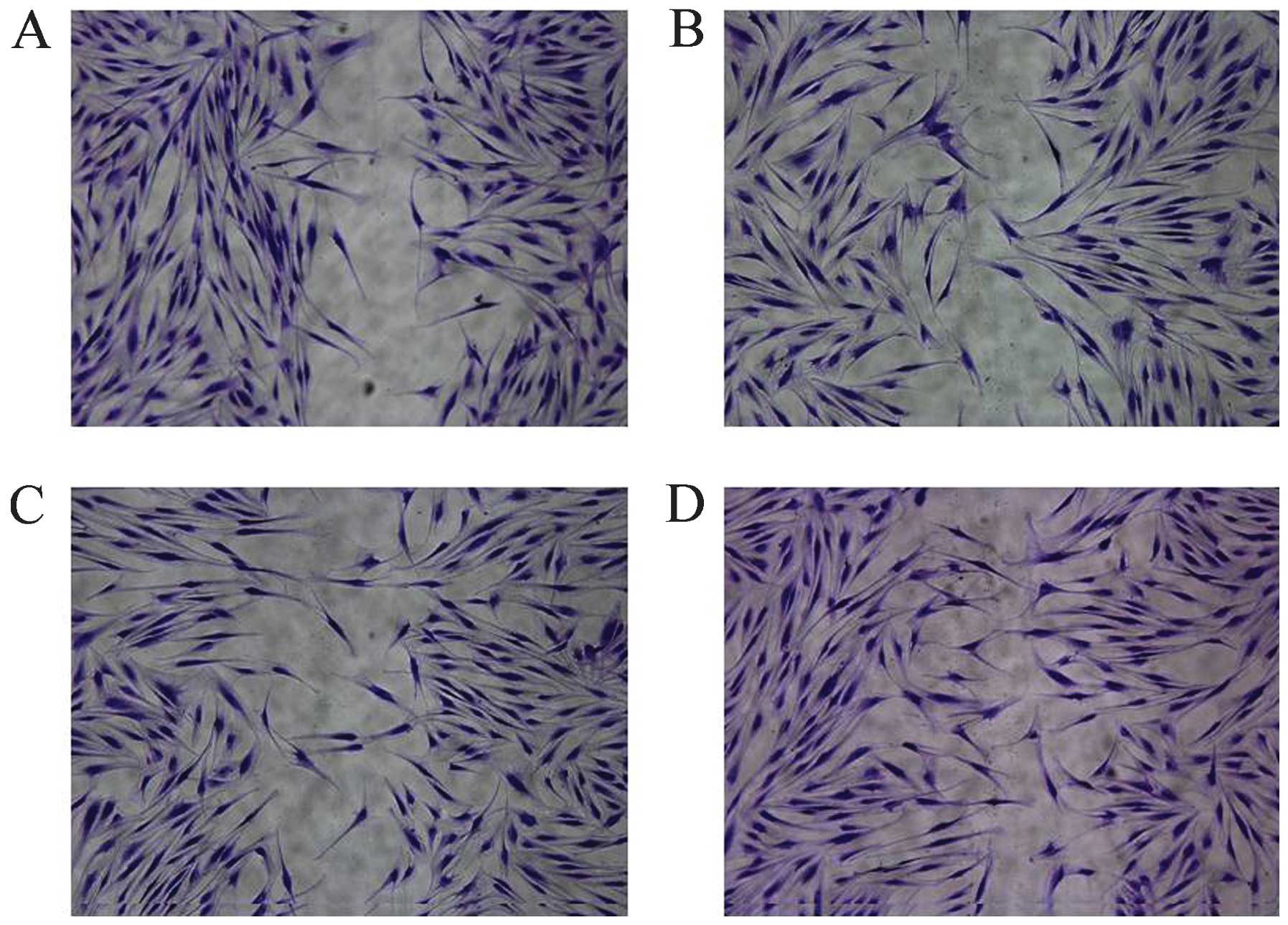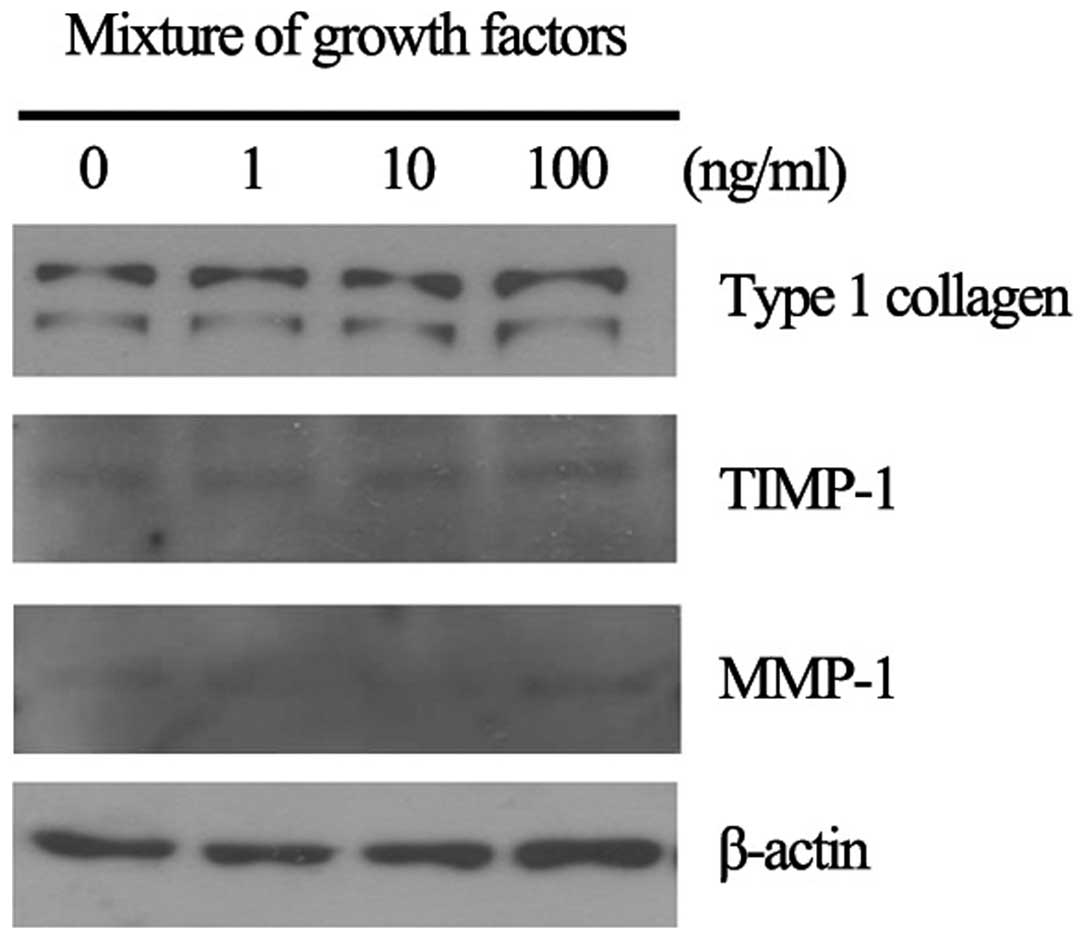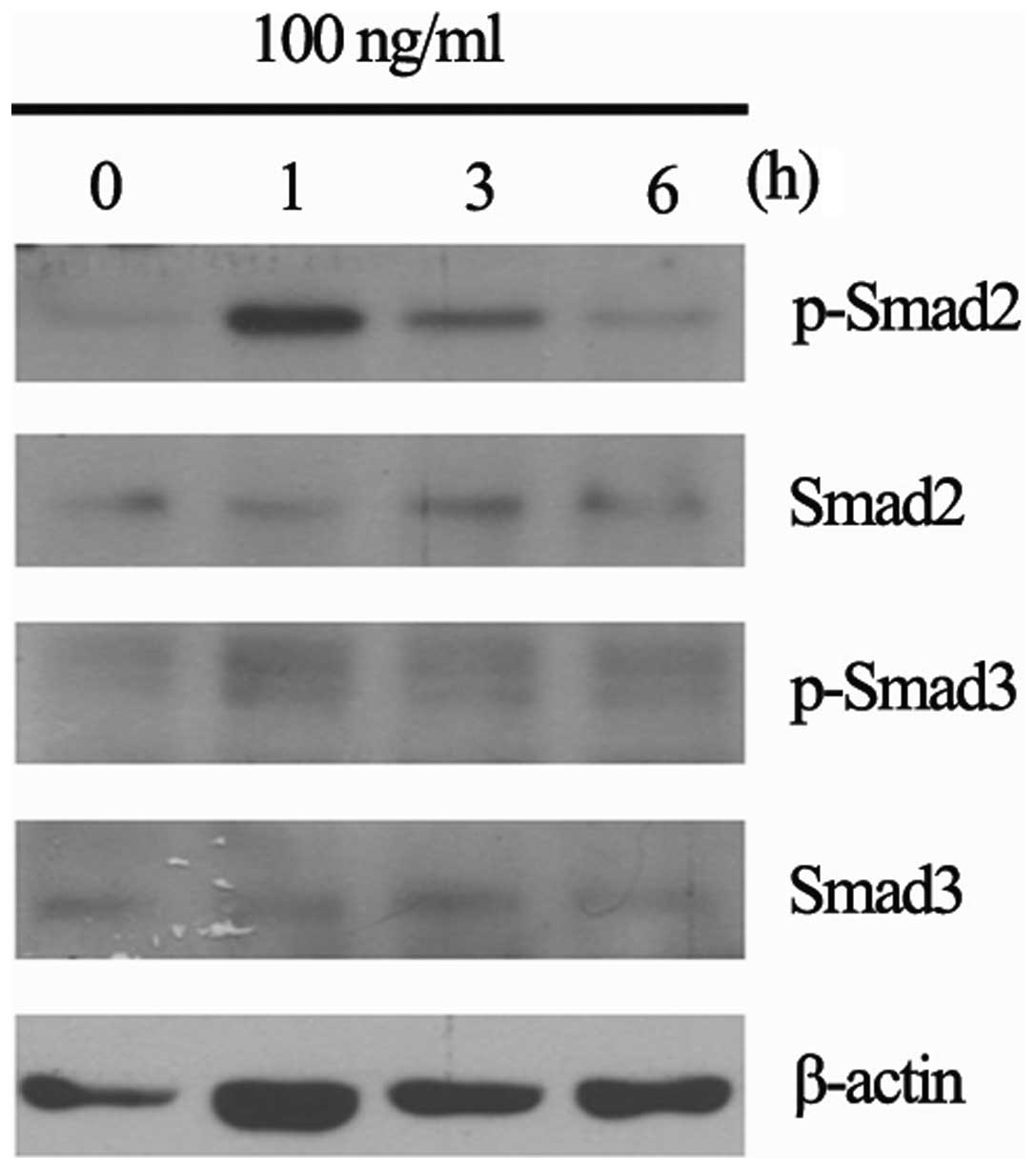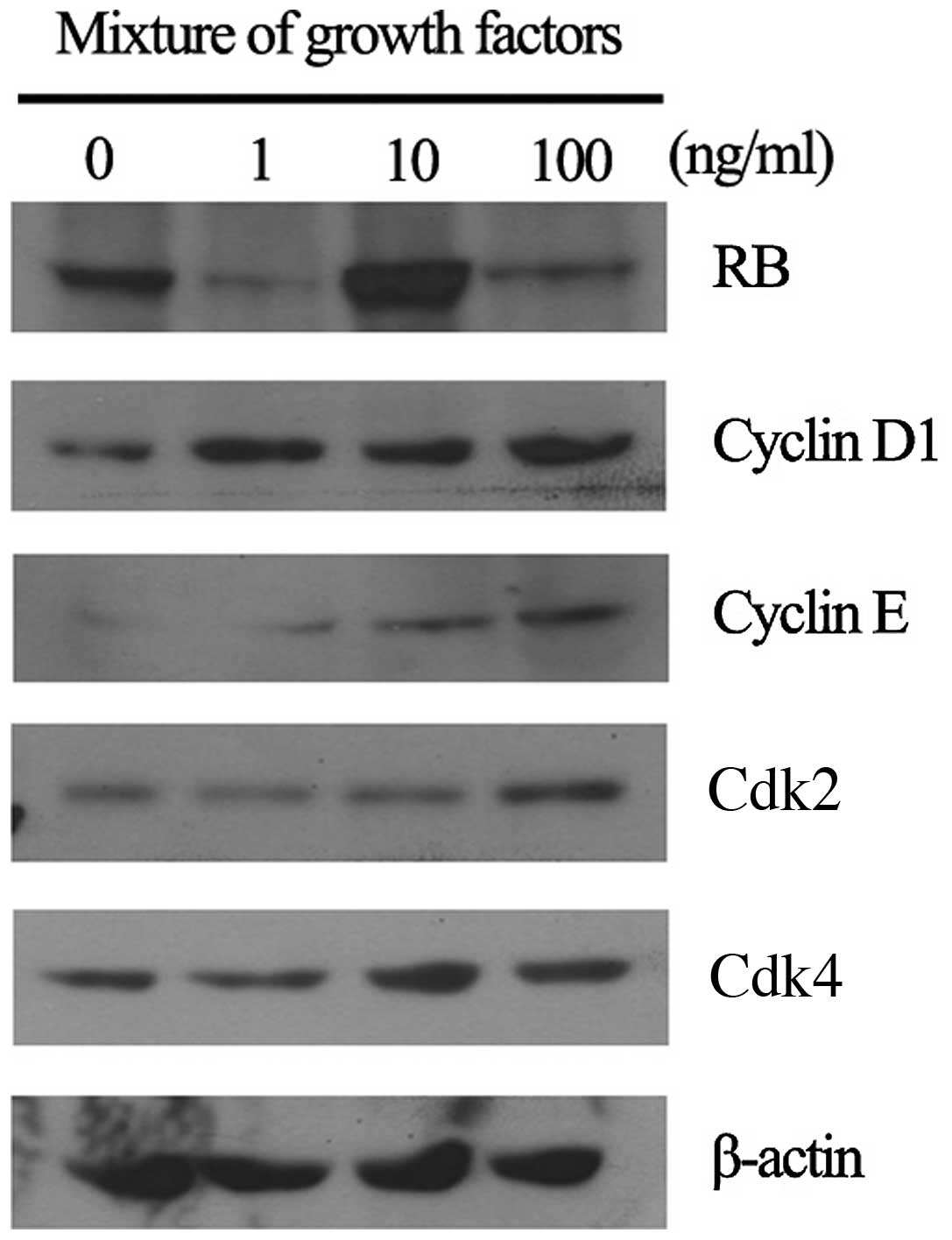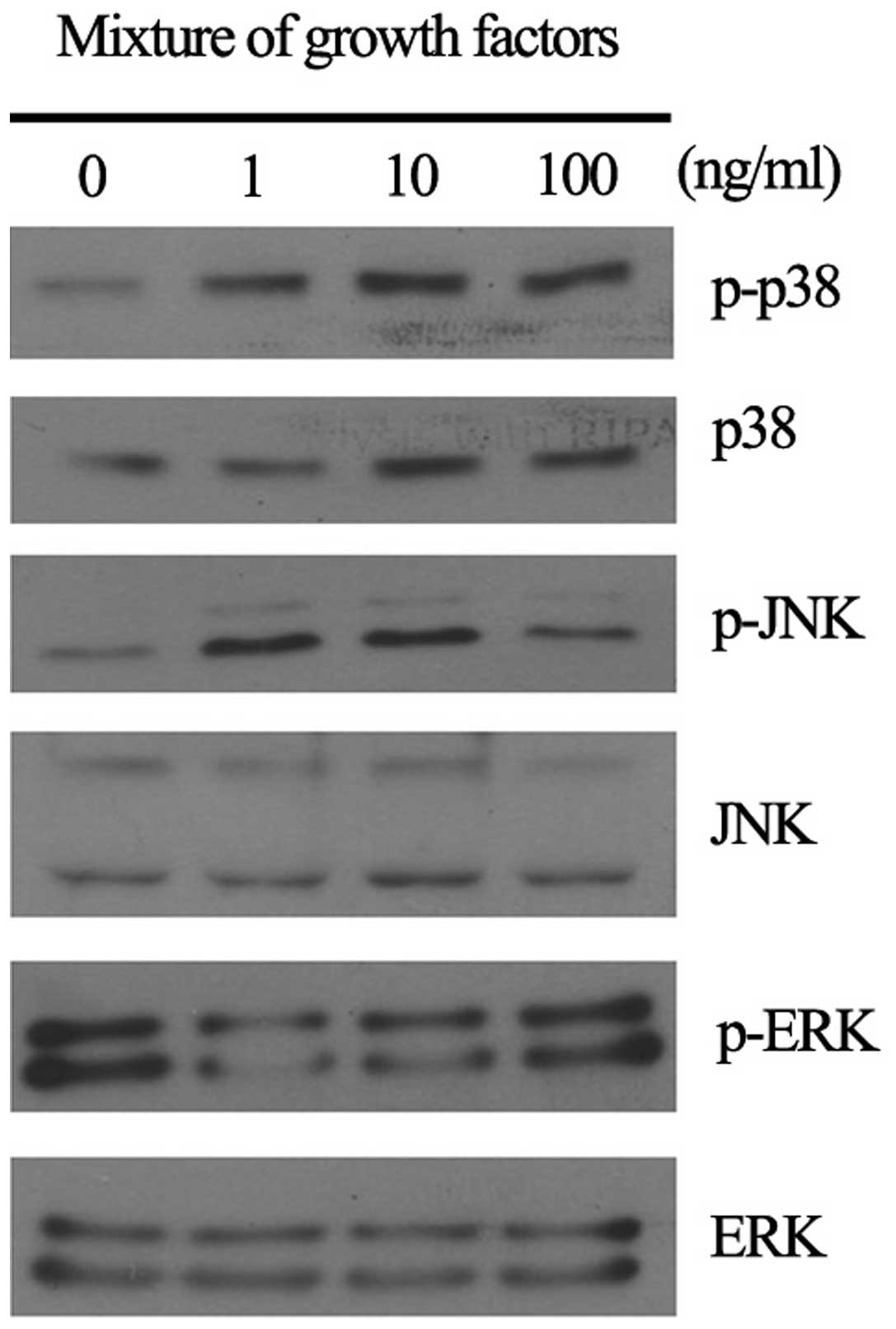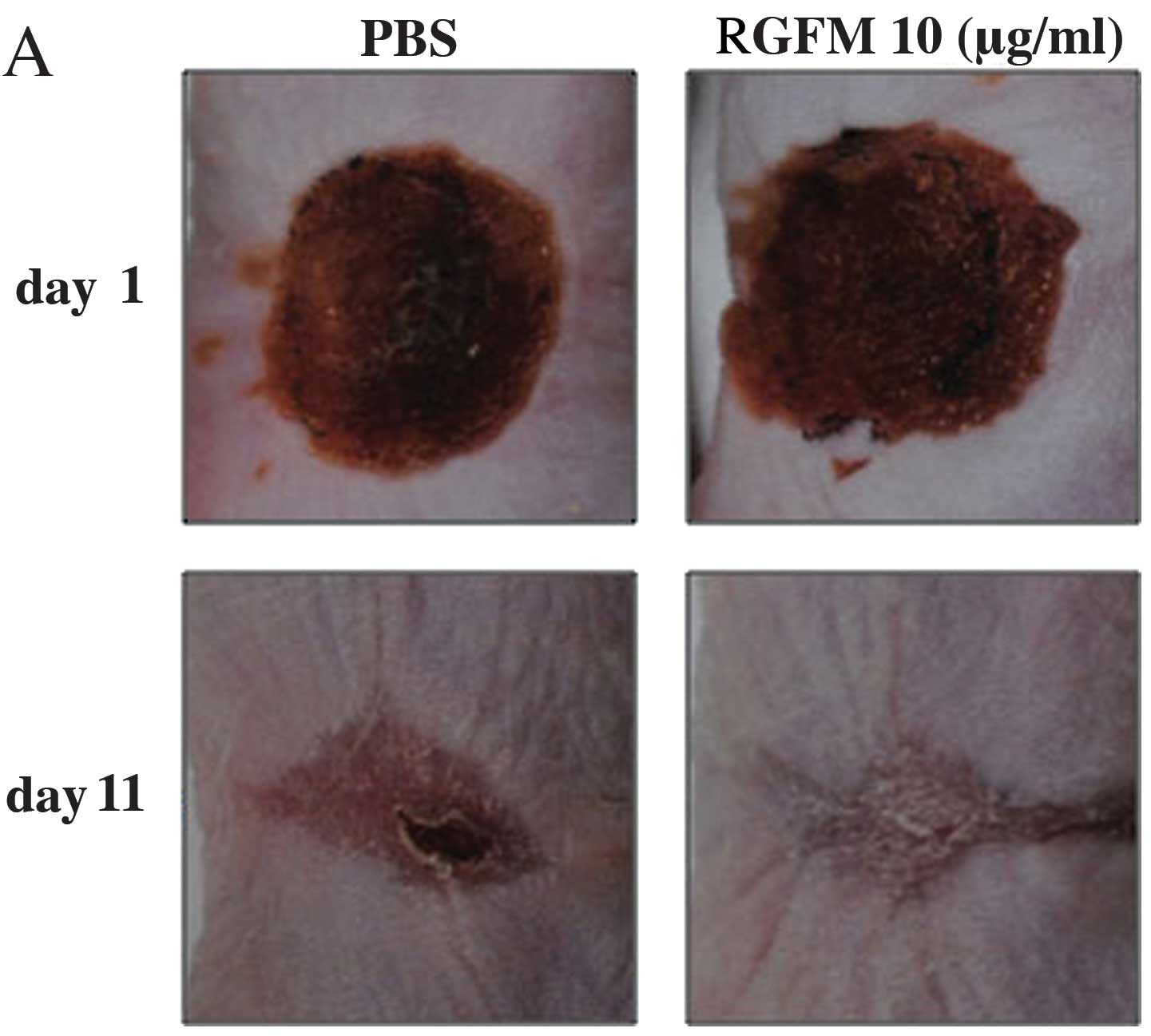Spandidos Publications style
Lee DH, Choi K, Cho J, Kim SY, Kwon TR, Choi SY, Choi YM, Lee J, Yoon HS, Kim BJ, Kim BJ, et al: Recombinant growth factor mixtures induce cell cycle progression and the upregulation of type I collagen in human skin fibroblasts, resulting in the acceleration of wound healing processess. Int J Mol Med 33: 1147-1152, 2014.
APA
Lee, D.H., Choi, K., Cho, J., Kim, S.Y., Kwon, T.R., Choi, S.Y. ... Kim, B.J. (2014). Recombinant growth factor mixtures induce cell cycle progression and the upregulation of type I collagen in human skin fibroblasts, resulting in the acceleration of wound healing processess. International Journal of Molecular Medicine, 33, 1147-1152. https://doi.org/10.3892/ijmm.2014.1698
MLA
Lee, D. H., Choi, K., Cho, J., Kim, S. Y., Kwon, T. R., Choi, S. Y., Choi, Y. M., Lee, J., Yoon, H. S., Kim, B. J."Recombinant growth factor mixtures induce cell cycle progression and the upregulation of type I collagen in human skin fibroblasts, resulting in the acceleration of wound healing processess". International Journal of Molecular Medicine 33.5 (2014): 1147-1152.
Chicago
Lee, D. H., Choi, K., Cho, J., Kim, S. Y., Kwon, T. R., Choi, S. Y., Choi, Y. M., Lee, J., Yoon, H. S., Kim, B. J."Recombinant growth factor mixtures induce cell cycle progression and the upregulation of type I collagen in human skin fibroblasts, resulting in the acceleration of wound healing processess". International Journal of Molecular Medicine 33, no. 5 (2014): 1147-1152. https://doi.org/10.3892/ijmm.2014.1698















